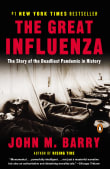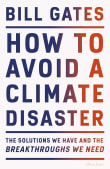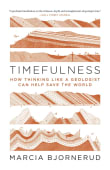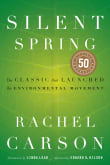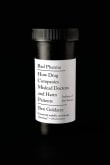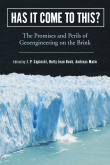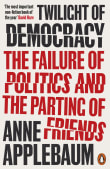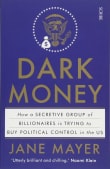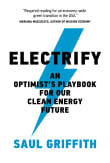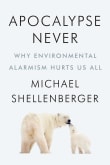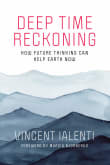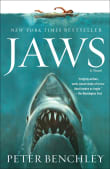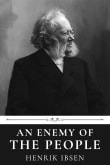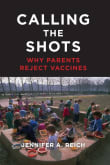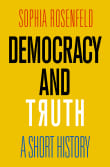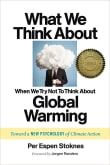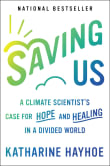Merchants of Doubt
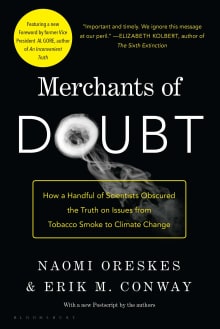
Book description
The U.S. scientific community has long led the world in research on such areas as public health, environmental science, and issues affecting quality of life. Our scientists have produced landmark studies on the dangers of DDT, tobacco smoke, acid rain, and global warming. But at the same time, a small…
Why read it?
10 authors picked Merchants of Doubt as one of their favorite books. Why do they recommend it?

Whilst not specifically about tech, I find this book a crucial intervention in clearly laying out how narratives can be weaponized for catastrophic negative impact.
I also really like how it focuses on the scientists themselves, amongst many other people, and their role in being part of the project of doubt – in understanding and unpicking hype, it’s crucial to consider all the actors involved in bringing science and technology into fruition, and this book expertly does just that.
From Gemma's list on navigate technology hype.

The political “war” against science is nowhere more obvious than in the decades-old efforts to mislead the public and deny the well-established science about climate change.
This book is a story of obscuring the truth, creating doubt, and manipulating the policy process to slow efforts to address the problem, while energy producers are unimpeded on their way to the bank. It's an old but familiar story. Just like efforts to deny the linkage of smoking to lung cancer or coal smoke to acid rain, this is the response whenever scientific findings suggest things that corporate and political actors find threatening…
From Robert's list on the “war” between politics and science.

When I was 8 years old, I plastered our house with anti-smoking stickers. It greatly annoyed my parents—but they quit smoking. Alas, a couple other close relatives did not, and both ended up dying from smoking-related diseases.
Part of the reason they did not quit was surely the decades-long campaign by tobacco companies to sow doubts about the dangers of smoking.
This book illuminates the strategies that the tobacco companies used to get a few scientists to spread these doubts, and I was amazed to see how the exact same strategies—and in some cases the very same scientists—have been used…
From Jeffrey's list on the science, consequences, and solutions to global warming.

A small group of politically motivated researchers weaponized science and successfully delayed government action on everything from the dangers of smoking to the threat of acid rain for decades. Does that sound like a conspiracy theory?
In this book, Naomi Oreskes and Erik Conway reveal that it was quite real. Motivated by conservative and then neoliberal ideas about the perverse nature of government regulation, these researchers systematically attempted to sow doubt about the harms of an unhealthy environment time and time again.
They didn’t have to win the scientific argument, they realized; rather, they just needed to fabricate the…
From James' list on the environment and health.

Raising doubt is a way of producing uncertainty or ignorance.
There have been several books on how various industries and lobbying organizations have used the production of doubt about scientific research as a strategy for profit-making or advancing political interests.
Merchants of Doubt is my favorite among them because it is very well written and thoroughly researched, covering the history of this kind of doubt-mongering from its genesis in the tobacco industry to its maturation and key roles in the climate-change wars.
The authors also highlight the involvement of some scientists in eroding the scientific consensus on issues such as…
From Michael's list on ignorance, uncertainty, and risk.

Terrifying and eye-opening, this tells the true story of machinations worthy of a John Grisham thriller. A small but powerful group is determined to deny science and subvert democracy by manufacturing a lucrative new product: doubt. As the authors meticulously document, this is done deliberately and cynically, by corrupting a handful of scientists, destroying the lives of incorruptible ones, and going heavy on lobbying and media spin. But unlike the thrillers, the ending on climate denial has still to be written; the ball is in our court.
From Elizabeth's list on to inspire you to fight climate change.

Why does such a large sector of the population doubt robust science about so many things? Partly because industries – associated with vaccines, global warming, tobacco smoke, acid rain, and so forth – have recruited people in a deliberate campaign to sew disinformation about scientists, scientific institutions, and scientific studies. This book reveals the dynamics of deception, and puts us all on alert.
From Robert's list on why people reject science and endanger themselves.

Humans have been aware of man-made climate change since the late 1800s, but in the 1990s fossil fuel industries used a tactic pioneered by the tobacco industry to create misinformation and control the narrative about climate change and global warming. By casting doubt about the reality of climate change using the same tactics as Big Tobacco used to downplay the negative health effects of cigarettes, Big Oil created a “debate” where there was none. Suddenly, the public began to feel as if experts were confused and disagreed on the data, when in truth, the scientific consensus was clear all along.…
From Joseph's list on understand future potential of renewable energy.

The tobacco industry knew that its products were killing people long before the risks from smoking were understood by the public, and decades before politicians acted on this public health risk #1. Oreskes and Conway analyze how the tobacco industry was able to forestall policy action for so long. They show how the same playbook is now playing out with climate change, and how the fossil fuel industry is using some of the same actors that worked for Big Tobacco to delay action on climate change.
From Stephan's list on the perils facing democracy.

This is the book that first provoked a realization that something more sinister had long been going on in postwar science beyond vague notions of a ‘Republican War on Science’. The authors revealed that, over and over, a small cadre of natural scientists and think tanks had been expressly undermining the science they disliked through the creation of Potemkin alternatives and fake doctrines, particularly when it came to tobacco-caused cancers, global warming, and a host of other areas. This book jump-started the now popular study of ‘agnotology’, that is, the intentional manufacture of ignorance about science in the general public.…
From Philip's list on the politics of science.
Want books like Merchants of Doubt?
Our community of 10,000+ authors has personally recommended 100 books like Merchants of Doubt.
Browse books like Merchants of Doubt
5 book lists we think you will like!
Interested in scientists, tobacco, and presidential biography?
10,000+ authors have recommended their favorite books and what they love about them. Browse their picks for the best books about scientists, tobacco, and presidential biography.
